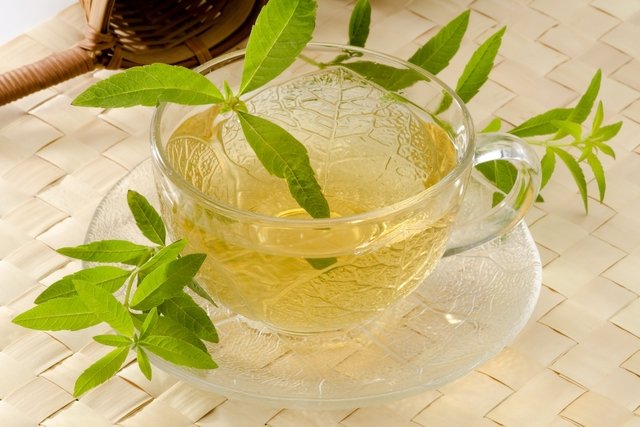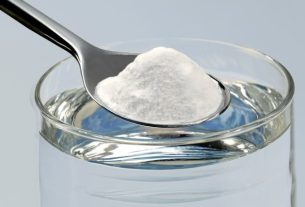Lemon verbena is a medicinal plant of the species Aloysia citriodora, rich in flavonoids, phenolic compounds, essential oils and verbascoside, com anti-spasmodic, antioxidant and anti-inflammatory properties, which is why it is popularly used to help treat intestinal cramps, diarrhea or excess gas, for example.
The normally used parts of this plant, which is also known as lemongrass, beautiful luísa, yerba luísa or sweet lime, are the leaves and flowers, from which active substances with medicinal properties are extracted to prepare tea.
Lemon verbena can be purchased in some markets, health food stores, street markets or compounding pharmacies, and should be used under the guidance of a doctor or other health professional who has experience with the use of medicinal plants.

What is it for
Lemon verbena has anti-inflammatory, antispasmodic, antioxidant, antibacterial and tranquilizing properties, and is normally indicated for:
- Diarrhea;
- Bad digestion;
- Intestinal and menstrual cramps;
- Urinary infection;
- Excess intestinal gas;
- Muscle pain;
- Fever;
- Asma;
- Insomnia;
- Agitation;
- Migraine.
Due to its properties, lemon verbena can also be used to help combat the symptoms of stress, anxiety and depression, for example, especially when used with other medicinal plants, such as linden and peppermint.
Furthermore, some studies (1,2) show that lemon verbena can help with weight loss and reduce the accumulation of body fat, as it helps regulate the levels of hormones related to the sensation of hunger and gastric fullness, especially when associated with hibiscus, in addition to improving intestinal flora. However, more studies are still needed to prove these benefits.
Although it has health benefits, lemon verbena does not replace treatment recommended by a doctor, being only a complement, and should only be used under the guidance of a doctor or herbalist.
How to use
The parts of lemon verbena used are its leaves and flowers to make teas, as well as to be used as a seasoning in cooking. Furthermore, lemon verbena can also be used in the form of an essential oil, especially for aromatherapy.
1. Lemon verbena tea
Lemon verbena tea should be prepared with the dried leaves of this plant and used to help treat gastrointestinal problems.
Ingredients
- 1 tablespoon of dried lemon verbena leaves;
- 1 cup of water.
Preparation mode
Boil the water and then add it to a cup with the dried lemon verbena leaves. Let it rest for about 10 minutes. Then strain, wait for it to cool and drink 1 cup of tea, 2 to 3 times a day, after main meals, or according to the guidance of your herbalist or doctor.
2. Lemon verbena essential oil
Lemon verbena essential oil is rich in citral, cineole, geraniol and limonene, for example, and can be used in aromatherapy to help alleviate symptoms of anxiety, insomnia or stress, as it has calming and sedative properties.
To perform aromatherapy with lemon verbena, you must deeply inhale the aroma of the essential oil directly from the bottle, holding the air in your lungs for about 2 to 3 seconds, before exhaling. Repeat inhalation 3 to 7 times, several times a day.
Another way to perform aromatherapy with lemon verbena essential oil is to place 2 to 3 drops of the essential oil in a little water, inside an electric air freshener or in a room diffuser. The amount of water used varies according to the capacity of the electric air freshener or diffuser. The cloud of smoke or vapor formed allows the aroma to be released throughout the room. See other ways to do aromatherapy.
Possible side effects
Lemon verbena is well tolerated when used as a tea for a short period and in recommended quantities. However, prolonged or excessive use can cause stomach irritation.
Therefore, its use should only be done with medical advice or from a healthcare professional with experience in medicinal plants.
Who shouldn’t use
Lemon verbena should not be used by pregnant or breastfeeding women, or by people with kidney problems.
Furthermore, lemon verbena essential oil should not be taken orally.
Bibliography
- JARADAT, N.; et al. Spectral characterization, antioxidant, antimicrobial, cytotoxic, and cyclooxygenase inhibitory activities of Aloysia citriodora essential oils collected from two Palestinian regions. BMC Complement Med Ther. 21. 1; 143, 2021
- BAHRAMSOLTANI, R.; et al. Aloysia citrodora Paláu (Lemon verbena): A review of phytochemistry and pharmacology. J Ethnopharmacol. 222. 34-51, 2018
- DIEZ-ECHAVE, P.; et al. The Beneficial Effects of Lippia Citriodora Extract on Diet-Induced Obesity in Mice Are Associated with Modulation in the Gut Microbiota Composition. Mol Nutr Food Res. 64. 13; e2000005, 2020
- MOURA, Maria F.. Secrets and virtues of healing plants. 1.ed. Lisbon: Seleções, 2011. 127.
- AFRASIABIAN, F.; et al. Aloysia citriodora Palau (lemon verbena) for insomnia patients: A randomized, double-blind, placebo-controlled clinical trial of efficacy and safety. Phytother Res. 33. 2; 350-359, 2019
- BOIX-CASTEJÓN, M.; et al. Hibiscus and lemon verbena polyphenols modulate appetite-related biomarkers in overweight subjects: a randomized controlled trial. Food Funct. 9. 6; 3173-3184, 2018

Sign up for our newsletter and stay up to date with exclusive news
that can transform your routine!
Warning: Undefined array key "title" in /home/storelat/public_html/wp-content/plugins/link-whisper-premium/templates/frontend/related-posts.php on line 12
Warning: Undefined array key "title_tag" in /home/storelat/public_html/wp-content/plugins/link-whisper-premium/templates/frontend/related-posts.php on line 13



